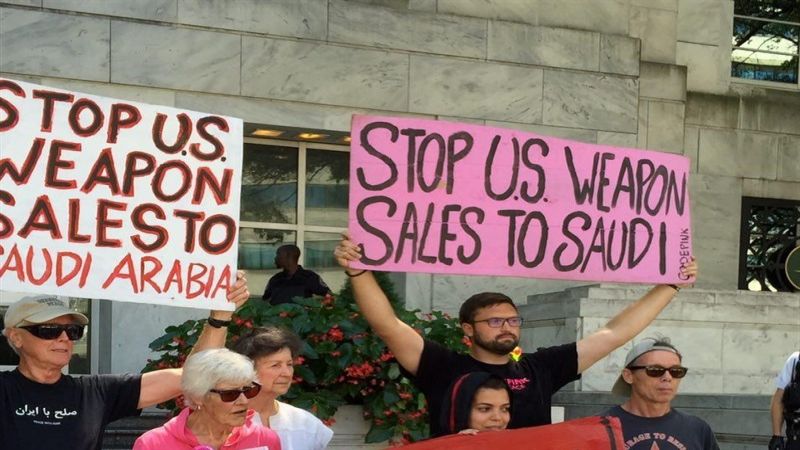
Local Editor
A group of over 40 NGOs have signed on to an open letter calling on senators to support SJRes54, a joint resolution introduced last month by Senators Bernie Sanders (I-VT), Mike Lee (R-UT), and Chris Murphy (D-CT). The resolution calls for a vote to authorize the U.S. military role in Yemen’s civil war under the 1973 War Powers Act. If that vote is held it could signal an end to U.S. involvement in Yemen and a reassertion of a congressional role in authorizing military action all over the world.
Yemen has been mired in a civil war since September 2014, when the Houthis, a Shia group based in northern Yemen, seized control of the country’s capital city, Sana’a. The Houthis’ move came amid a dispute with Yemen’s resigned former president, Abd Rabbu Mansour Hadi. Meanwhile, the Houthis, along with forces loyal to Yemen’s former president, Ali Abdullah Saleh pushed south until they reached Aden in March 2015.
At that point a coalition led by Saudi Arabia—and including the United Arab Emirates along with several other Middle Eastern and African countries—intervened in the war on behalf of Hadi and his regime. What followed has been a nearly three-year-long humanitarian catastrophe, one that the United Nations says could be the worst the world has seen in the past 50 years. More than 10,000 civilians have been killed—most of those by coalition airstrikes—and millions have been displaced by the violence. An estimated eight million people are at critical risk of starvation, and the conflict has caused the worst cholera outbreak in recorded history, with over one million cases. Both of those crises have been exacerbated by the coalition’s blockade of Yemen—which is ostensibly meant to keep weapons from reaching the Houthis but has slowed and frequently prevented the entry of humanitarian aid—and by airstrikes that have damaged Yemen’s largest port, Hodeida. The AP uncovered evidence that the UAE has been operating a network of secret prisons in southern Yemen where detainees are routinely tortured.
The Saudi-led coalition’s war in Yemen would likely be unsustainable without U.S. support. The U.S. refuels and helps maintain the coalition’s aircraft. It shares targeting information with the coalition. Its naval vessels have helped to bolster the coalition blockade. And despite its occasional criticisms of the coalition’s excesses the U.S. continues to sell hundreds of millions of dollars in weaponry to Saudi Arabia and the UAE while their war in Yemen rages. All this is happening while the U.S. is conducting a parallel warin Yemen against al-Qaeda in the Arabian Peninsula (AQAP)—a group that, ironically, has benefitted considerably from the chaos created by the U.S.-backed, Saudi-led intervention. That campaign against AQAP is not covered by the Sanders-Lee-Murphy resolution.
Source: News Agencies, Edited by Website Team